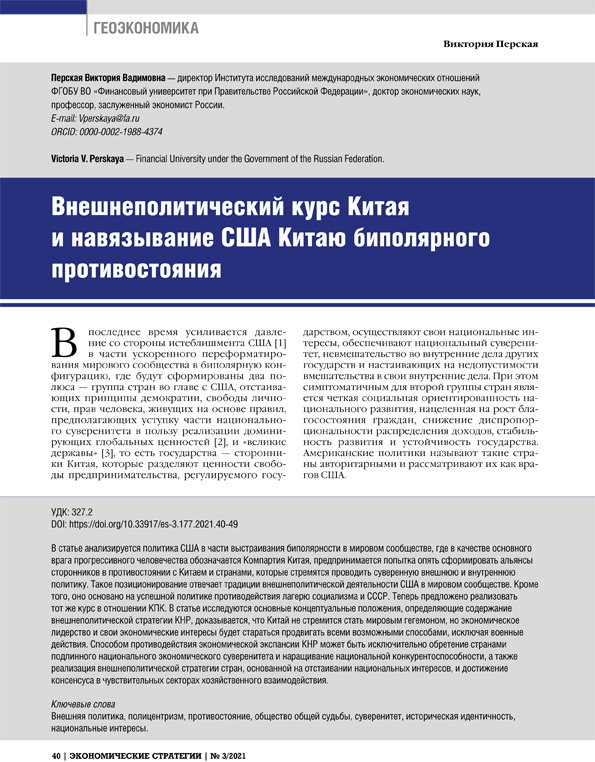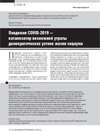Foreign Policy of China and the United States’ Imposition of a Bipolar Confrontation on China
DOI: https://doi.org/10.33917/es-3.177.2021.40-49
The article analyzes the US policy in terms of rebuilding bipolarity in the world community, where the Communist Party of China is designated as the main enemy of progressive humanity, an attempt is made to reform alliances of supporters of confrontation with China and countries that are confidently striving to pursue sovereign foreign and domestic policies. For the United States, this positioning corresponds to the tradition of foreign policy activities in the world community. In addition, it is based on the success of the policy of counteracting the camp of socialism and the USSR, and it was proposed to implement the same course in relation to the CPC of the PRC. A study of the main conceptual provisions determining the content of the PRC’s foreign policy strategy was carried out, it was proved that China does not seek to become a hegemon in the world community, but economic leadership and its economic interests will try to promote in all possible ways, excluding military actions. The economic expansion of the PRC can only be counteracted by the countries gaining genuine national economic sovereignty and building up national competitiveness, an interstate foreign policy strategy pursued by countries on the basis of realizing national interests and reaching an agreed consensus in sensitive sectors of economic interaction.





